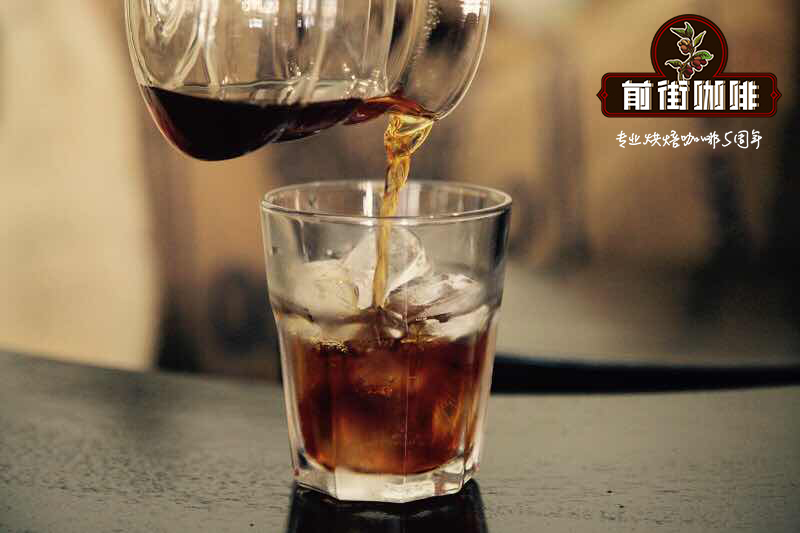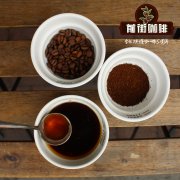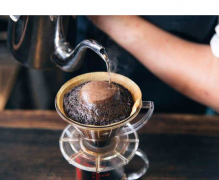Rwanda coffee history and coffee market

Professional coffee knowledge exchange more coffee bean information please follow the coffee workshop (Wechat official account cafe_style)
Rwanda: small but powerful
About 60 years ago, Rwanda, under the rule of Belgium, was a country with high coffee production and low quality.
Thirty years ago, Rwanda experienced a protracted economic crisis due to increased political instability and falling prices of green coffee.
Just 25 years ago, Rwanda was in the midst of civil war and genocide against the Tutsi population, killing nearly 1 million people and displacing more than 2 million people.
These events shook the country and almost brought the coffee industry to a standstill. However thanks to the strong participation of the Government of Rwanda and support from external non-governmental organizations and private political parties Rwanda has managed to make a comeback as a stronger more secure and more stable country. After the genocide plummeted by 50% in 1994
According to the World Bank, Rwanda's GDP jumped by 35 per cent in 1995 (from a low base), followed by 13 per cent in 1996 and 14 per cent in 1997. Over the past decade, China's gross domestic product (GDP) has grown at an average annual rate of 7.2 per cent.
Similarly, according to the International Coffee Organization (ICO), after losing a significant portion of its workforce, the coffee industry has made a comeback, with production plummeting by 95 per cent to just 22000 bags of 60kg during the 1994 harvest. In the following harvest season, production has rebounded to 329000 bags of 60 kg and has remained stable ever since.
George Kayonga, chief executive of the State Agricultural Export Development Bureau (NAEB), explained: "Coffee plays an important role in the country's economy, making a significant contribution to foreign exchange earnings and the monetization of the rural economy." "Coffee is one of the four major sources of export earnings in the country, which makes the coffee industry one of the pillars of the country's economy."
Farms in Rwanda are spread throughout the central, southern and western parts of the country, and its mountainous terrain makes most of the farms located above 1200 meters. More than 97 per cent of coffee is Arabica, of which about 95 per cent is one of several varieties of bourbon, a move taken by the government to protect the country's market. The combination of these factors produces a strong coffee flavor, sweetness and high acidity.
Despite the good conditions for growing coffee, this small landlocked country is difficult to compete in quantity. In fact, Rwanda barely ranks among the top 30 coffee producers in the world, contributing less than 1 per cent of global coffee production, according to ICO. This is largely due to the small size of the country and the small size of each farm. According to NAEB, most of Rwanda's coffee is produced by about 335000 farmers, who each own less than a quarter of a hectare of land. There are no large coffee farms in this country. As a result, the yield of each farm is usually very low, and the situation is exacerbated by old trees on most plots.
Banjamin Nkurunziza, sales and marketing manager of RFCC, a local processor and exporter, explains that the challenge begins a cycle in which farmers' meagre incomes, especially at the current record low prices, are used to meet basic needs. Because of their limited income, farmers do not have enough money to invest in coffee cultivation to apply good agricultural practices. So investing money in coffee cultivation is always a challenge. "when farmers cannot invest in better practices and input or upgrade their trees, they continue to produce low yields and low quality, so the cycle continues.
While investment and initiatives since the civil war have focused on increasing production, there is limited land available for expansion. As a result, NAEB and others have been working to increase the productivity of existing farms and trees, while shifting the historical focus of local industry from commodity-grade markets to high-quality markets.
Kayonga told the Global Coffee report: "the Rwandan government has chosen to focus on specialty coffee because our competitive advantage increases with specialty coffee rather than large amounts of coffee." "therefore, our popularity mainly depends on the quality of our exports."
The government mainly provides technical assistance and planting materials to farmers through NAEB to support domestic coffee processing and value-added, and promote the steady improvement of coffee quality at home and abroad.
In 2017, NAEB and the Japan International Cooperation Agency (JICA) launched a three-year technical project-upgrading and Promotion of Rwandan Coffee (CUP Rwanda). The project established two demonstration coffee farms in the western provinces to teach appropriate farm layout and agricultural practices.
"the project supports the entire value chain, but focuses on two areas: good planting practices and quality improvement of downstream activities," explained Pascal Furaha, director of agriculture at the Rwanda International Cooperation Agency. "the project also makes unremitting efforts to improve industry coordination by organizing a functional coffee platform to promote smooth discussion and better exchange of information among participants along the value chain."
Another recent NAEB project is a five-year partnership with RFCC and U.S.-based Global Food. The focus of the partnership is on added value, which is a priority of Rwanda's larger economic development strategy. As one of the few roasters in Rwanda, RFCC is demonstrating the value of processing to upstream suppliers through its brand Gorilla's coffee, while Global Food is entering the US market through its extensive logistics and distribution network.
According to the Federal Communications Commission, roasted coffee beans cost twice as much as green beans, which means higher incomes and higher living standards for producers. The cooperation, which began in 2018, is expected to benefit nearly 5500 farmers in six coffee cooperatives.
"of course, the main goal is to promote the livelihoods of Rwandan farmers," Nkurunziza told GCR. "when we export coffee, we are first of all adding value. Therefore, we should contribute not only to improving the lives of farmers, but also to the economy of the country. "
With the initial help of the United States Agency for International Development (US Agency for International Development) and the help of many cooperatives that set up their own washing stations, NAEB took the lead in expanding the number of washing stations. In the past, farmers sold unprocessed coffee to middlemen at the lowest price, and most of the coffee was exported in this unprocessed form. But today, there are more than 300 coffee washing stations across the country-- only two in 2000-- bringing the proportion of full-washed coffee to more than 65%, up from 10% in 2000. With these large number of washing stations, farmers' groups and cooperatives can process their own cherries and sell green coffee at higher prices, while greatly increasing the share of high-quality coffee in Rwanda's overall production.
Despite the necessary support, resources and infrastructure provided by the government, "agribusiness practitioners and the private sector are encouraged to invest in coffee processing to increase the value of the ordinary coffee we used to export," Kayonga said of the great work done over the years. "We have set up coffee washing stations, dry grinding and baking plants, all to promote our small farmers and to make more profits from our exports. The more high-quality coffee is exported, the more income the beneficiaries will receive. "
According to the coffee strategy developed by NAEB in 2002, "Rwanda will continue to produce full-washed coffee and regular coffee, most of which are full-washed coffee." The advantage of continuing to produce these two types of coffee is that it provides competition for cherries, which ensures that farmers get the highest possible price for cherries and that Rwanda is not entirely dependent on the specialty coffee market. "
NAEB aims at projects at the farm level and the expansion of processing capacity, while the African Fine Coffee Association (AFCA) is committed to the other end of the value chain, hoping to promote the consumption of Rwandan coffee at home and abroad.
Samuel, executive director of AFCA? "We see great potential for the development of domestic markets in African countries," said Samuel Kamau. He pointed out that 99% of Rwanda's coffee exports. It is also the most densely populated country on the African continent, so AFCA sees great potential to turn some of its 12.2 million consumers into coffee drinkers, not to mention the potential of the entire continent.
"domestic consumption is quite low, so this provides an opportunity," he said. "We are studying how to develop this market in the next three years and how to create more effective marketing."
Furaha told GCR that the project with JICA also includes a component to promote local consumption, including the organization of barista training, coffee competitions and tourism activities "to improve their skills and motivate them." "the project encourages domestic consumption of coffee to stimulate awareness of the quality of domestic coffee, which is very important to understand the needs of the global market."
In 2008, Rwanda hosted the first official Cup of Excellence (which has been held every year since), and the capital Kigali hosted this year's AFCA annual meeting and exhibition. "after the continued growth in professional production, it is time to demonstrate the achievements of this important source," Camau said of AFCA's decision to hold an annual meeting in Rwanda.
The annual meeting "allows cooperatives and exporters to meet directly with professional buyers and negotiate prices," Kamau said. But this year, "A key aspect of the Rwanda conference is the participation of women and youth. By working with the International Women's Coffee Alliance here, we can really bring together many women in the coffee industry and work with sustainable growers, and we can demonstrate what they are doing in the farmland. "
At the same time, Rwandan coffee has been praised abroad. Last year, Rwanda won the "Best of the Best Coffee" and "the Choice of Coffee lovers" at the illycaffe's annual Enestoy International Coffee Award (Ernesto Illy International Coffee Award). According to the criteria of complexity, balance and intensity, coffee grown at the Ngororo Coffee washing Station in western Rwanda was selected after multiple rounds of blind taste by an independent jury. Ngororero was selected from the world's top wines harvested in nine countries in 2017 / 2018.
Recognition and efforts on the international stage, coupled with extensive work at the farm level, have helped the Rwandan coffee sector to rebuild and develop after its turbulent past. Although average production is lower than it was before the civil war, overall production remained stable, rising by 10 per cent during the 2018 harvest season. NAEB hopes to expand the area of arable land from the current 37700 hectares to 39500 hectares by 2023 and increase the production of specialty coffee to 80 per cent by 2020. While these appear to be ambitious goals, Rwanda has proved to be capable of achieving great feats.
"with the close integration of cooperatives and exports, and the shortening of the value chain from farmers to the international market, I see a bright future for the coffee industry in Rwanda," Camo estimated. " "with the continued support of the government, I look forward to better results in the future."
END
Important Notice :
前街咖啡 FrontStreet Coffee has moved to new addredd:
FrontStreet Coffee Address: 315,Donghua East Road,GuangZhou
Tel:020 38364473
- Prev

Ecuador Coffee Ecuador Excellence Cup Ecuador first Coffee Excellence Cup
Professional coffee knowledge exchange more coffee bean information please follow the coffee workshop (Wechat official account cafe_style) Coffee Excellence Cup will be held in Ecuador, this is the first time in the 20-year history of the event. The CoE Cup competition and auction will be held for the first time in Ecuador, a country widely considered by coffee buyers to be in the arabica specialty coffee market.
- Next

The three schools of Japanese style with a full sense of ritual: volcanic rush, loose grip and drip method (with visual
Japan is really ceremonial about coffee. The coffee powder will bulge like a volcano and the spoon will dig a big hole in the coffee powder or drip like an hourglass. Wow! For the first time, the editor saw that Japanese hand flushing was really deeply infatuated. The coffee hasn't been drunk yet, but the technique is leveraged. It gives the highest respect to a cup of coffee. Today, the editor will talk about Japanese coffee.
Related
- Got entangled?! Lucky opens a new store, Mixue Ice City, and pursues it as a neighbor!
- How long is the shelf life of high-quality hand-brewed hanging ear coffee? Why is the taste period of hanging ear coffee ground into powder only one month?
- Why does hand-brewed espresso smell good but taste bitter? Is the flavor of high-quality hand-brewed coffee aroma or taste?
- Special treatment? COSTA's China business was evaluated separately!
- Match with Xi Tea?! Lucky will launch the new "Snow Cheese Grapes"
- What is the recommended proportion of water temperature and grinding time for hand-flushing Huakui coffee beans? What parameters should be used for cold extraction and cold brewing hand-brewed Huakui coffee?
- Share the most detailed golden formula for cold extract coffee making on the whole network! What proportion of ground is used to make cold coffee brewed for several hours?
- What are the advantages of segmented water injection for hand-brewed coffee? How many stages should I fill the water when making coffee and what is the best time for grinding the water temperature?
- What are the water quality requirements for hand-brewed coffee? What water is the best? Why can't coffee machines use pure water to extract coffee?
- Why does it become bitter after making coffee with your hands and letting it cool? What is the difference between the taste of hot coffee and cold coffee? Which is better?

